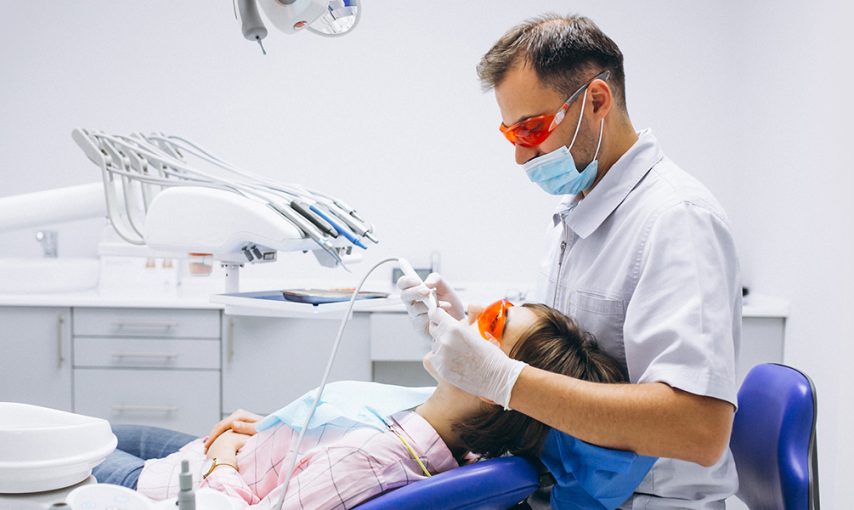Facing maxillofacial surgery can feel overwhelming, but knowing what follows makes all the difference. Recovery isn’t guesswork—it’s a process. With the proper steps, you’ll regain comfort and function sooner than you think. This blog walks you through each stage of healing, what to expect, and how to make recovery smoother and more manageable from day one.
What Happens Right After Surgery?
Right after surgery, you’ll likely feel groggy and tired. This is normal. The anesthesia wears off slowly, and your body needs time to adjust. Depending on your procedure, your mouth or jaw may be wired shut or supported with elastic bands. Bandages may be used to support the area.
Here’s what else to expect in the first few hours:
- Numbness around your lips, cheeks, or chin
- Bleeding or mild oozing from the surgical area
- Swelling that begins within hours.
- A tight or stiff feeling in your jaw
Your care team will usually give you instructions on how to clean your mouth, take your medicine, and eat without hurting yourself. Follow them closely.
Week-by-Week Recovery Timeline
Everyone heals at their own pace, but if you’re seeking dental clinics offering maxillofacial surgery near you, it helps to understand the typical recovery process most patients experience.
Days 1–3: Managing Initial Discomfort
This is the toughest part. The pain and swelling are at their highest. You may feel pressure in your jaw, ears, or cheeks.
- Use cold packs on the sides of your face.
- Keep your head raised to lower swelling.
- Take medications as instructed, including antibiotics
- Stick to soft, cool foods like smoothies, yogurt, or soup.
Avoid using a straw. Suction can slow healing or cause bleeding. Rest as much as you can.
Week 1: Reduction in Swelling and Bruising
By the end of the first week, the worst is behind you. Swelling starts to fade. Bruising may show up in yellow or green patches.
- Begin gentle mouth rinses with saltwater
- Start moving your jaw slightly (if allowed)
- Continue eating soft foods and drinking water
- Follow-up visits may be scheduled to check progress
You’ll probably still feel tired, and your appetite might be lower than normal. That’s okay. Keep going.
Week 2–4: Regaining Function
These weeks are about slowly returning to daily activities. You may still have soreness or stiffness, but things will start feeling more normal.
- Introduce more solid foods like scrambled eggs, pasta, or mashed potatoes
- Brush your teeth with a soft toothbrush
- Avoid lifting heavy items or bending over
- Return to work or school, but keep stress levels low
Most people feel about 60–80% back to normal by week four.
One Month and Beyond: Long-Term Healing
At this point, your bones are healing from the inside out. You might look and feel healed, but the deep healing continues for months.
- Continue follow-ups with your oral surgeon.
- Start light exercise, if cleared.
- Chew normally if given the okay.
- Stick to your dentist’s care plan.
If you had work done on the jawbone, it can take up to six months for full strength to return.
Common Side Effects and When to Call Your Surgeon
Minor discomfort is expected. But some symptoms need attention. Watch for:
- Fever over 100.4°F
- Pus or unusual discharge from the site where surgery was done
- Trouble breathing or swallowing
- Severe, increasing pain not managed by medicine.
If anything feels wrong, don’t wait. Call your surgeon.
Normal side effects include:
- Numbness in the lips or chin (can last weeks)
- Difficulty chewing
- Mild headaches
- Ear discomfort from jaw tension
All of these should fade with time.
Essential Recovery Tips
Healing well is not just about resting. It’s about doing the right things at the right time.
Here are proven ways to help your body recover:
- Stay hydrated: Water helps wash out toxins and supports healing.
- Eat enough nutrients: Protein, soft veggies, and fruit matter.
- Follow medicine instructions: Don’t skip doses or stop early.
- Practice good hygiene: Keep your mouth clean to prevent infection.
- Use warm compresses after the first few days to relax jaw muscles.
And most importantly—listen to your body. If you’re tired, rest. If you’re in pain, take it seriously.
Lifestyle Adjustments and Emotional Well-Being
Surgery affects more than your face—it touches your daily routine and mindset. It’s normal to feel frustrated or low during recovery.
Some lifestyle changes may include:
- Changing your sleep position (always keep your head propped)
- Avoiding intense workouts or sports
- Eating differently for a while
But it’s just as important to check in on your emotions. You may feel isolated or annoyed because things take time. That’s okay. Healing is hard. But remember:
- Keep in touch with loved ones—even short chats help.
- Don’t push yourself to “feel normal” too soon.
- Celebrate small wins, like your first meal without pain.
If anxiety or sadness lasts, talk to your doctor. Sometimes a counsellor can offer support, especially if the surgery changed your appearance or speech.
Final Thoughts
Recovery from maxillofacial Surgery in Evergreen Park, IL, takes time, care, and the right support. Every step forward matters, even the small ones. Let trusted professionals guide you. Family Dental Care is here to answer questions, offer guidance, and support your healing. Ready to start your recovery journey with confidence? Contact us today to schedule your consultation.


